We Wrote and Published 30 Blog Posts in 1 Day - Here's How
.jpg)
We got 30 blog posts live in 1 day... How'd we do it? We all know content is still king but teams are trying to do more than ever with less, and are beyond bandwidth constrained. Agencies are expensive and content creation is time-consuming, resource-intensive, and often requires a significant amount of research and planning. According to a recent HubSpot study, nearly one-third of marketers spend over four hours on a single blog post. From small teams with no dedicated content resource to large teams where content marketers have a ton of priorities and work on their plates, creating the volume of content they desire while also meeting their quality bar is often impossible.
30 Posts, 1 Day
But what if you could create months worth of content in a day? Imagine what that could free your team up to accomplish. Yesterday, we generated and published 30 blog posts using Tofu which would normally take a marketing team weeks, if not months, to complete. Tofu was able to streamline the process of brainstorming topics, conducting research, writing drafts, editing, and finally, publishing.
One of the key advantages of using Tofu is its ability to repurpose existing content. There is already a plethora of great content lying around... some of which we've created ourselves (such as AMA videos, case studies, etc) and a lot more that was created by other people and companies on various channels ranging from analyst reports, 3rd party research and surveys, "influencer" content on channels like LinkedIn, podcasts, YouTube videos, webinars, and more. Very few ideas are original so you can create your own thought leadership by contributing to, and building upon the most engaging and relevant pieces in your industry.
Generating Original Content
For original content, we used the Playground in Tofu which is a chat interface similar to ChatGPT. We input some topics and themes that we had from previous brainstorming docs and then also grabbed some from other relevant channels that were getting engagement with our target audience. You can iterate and experiment with different angels and formats and generated blog posts for each topic.
Where to find topic inspiration:
- Talk titles for relevant industry events
- Trending content on LinkedIn
- Newsletters that aggregate relevant news and info for your category

Repurposing Our Existing Content
We generated a few net new pieces but then also looked to our previous webinar recordings, case studies, and social content to repurpose into blog posts. Tofu ingests the existing asset that was human-generated, high quality, and approved by our team and then we select what output we want. In this case, we selected "Blog Post" as the output and Tofu spit out blog posts using our tone and messaging that is stored in the Playbook and also followed our blog post template.
Where to look for content to repurpose:
- Webinars, videos, and podcasts
- Whitepapers, eBooks, and guides
- Case studies
- Research or surveys

Transforming 3rd Party Content
There are a ton of really smart people in our industry who produce amazing content. We want to not only support them and amplify their work, but we want to put our own spin on a topic that they've brought to the conversation. Another set of blog posts came from leveraging 3rd party content and repurposing it for our own use, giving the author full credit and acknowledgment. We are trying to provide knowledge and value to our audience and sometimes that means showcasing other people's work!
Where to find content to transform:
- Analyst reports and research
- State of X in [YEAR] or predictions guides
- Posts from influencers on LinkedIn with high engagement
- Podcasts or YouTube videos related to your domain

Creating a Content Machine
One of the most important aspects of this experiment was the quality of the content produced. We needed these posts to be shippable with very minimal editing (if at all). The content also needed to be relevant and speak to the specific needs and pain points of our target audience. By starting with mostly human-written, original content, we can ensure the quality of the outputs will reach a certain quality threshold and by incorporating Tofu's own messaging and style guide in the Playbook as well as blog post template, we are able to get the outputs to be default shippable.
At the end of the day, every team right now is trying to "do more with less" while still maintaining a consistent drumbeat of content. Instead of draining your team's time or spending a tremendous amount of money on expensive agencies, AI tools like Tofu can help your team with:
- Increased productivity: Generate more content in less time, allowing your team to focus on other critical and more strategic tasks
- Improved content coverage: By incorporating new ideas, existing content, and external assets you can cover more topics and capture more eyeballs
- Greater consistency: Maintain a consistent brand voice and messaging across all your content pieces
- Cost savings: Reduce the time and resources required for content creation, ultimately leading to cost savings for your organization
If you want to turn your content efforts into a content machine, we'd love to show you how!
Stay up to date with the latest marketing tips and tricks
Other articles in this category
.png)
Hyper Personalization in B2B Marketing: AI Campaigns at Scale
Hyper-personalization in B2B marketing uses artificial intelligence and real-time data to deliver individualized content to each target account.
.svg)
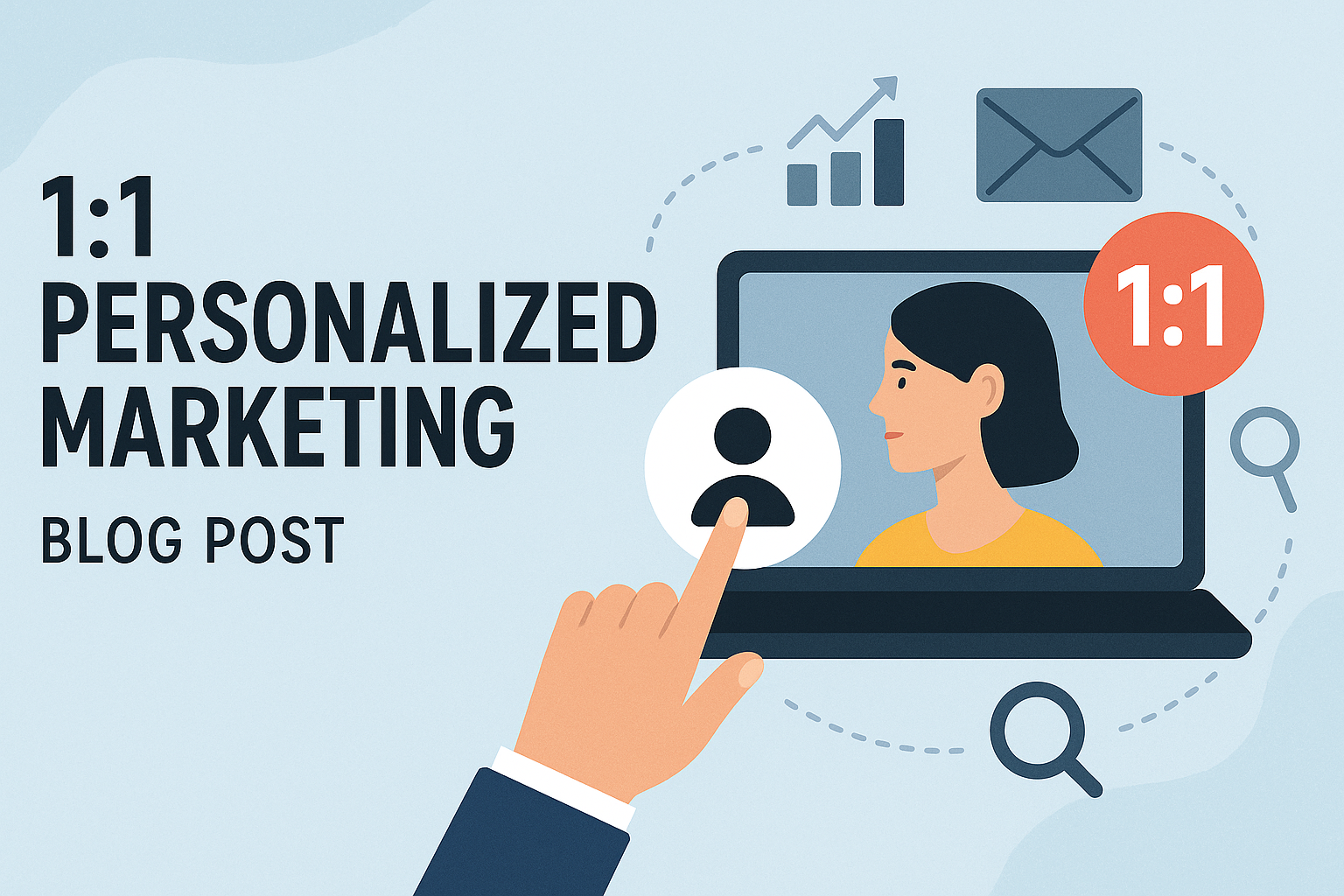
Best Tools for 1:1 ABM Campaigns
Discover the top AI marketing tools for 1:1 ABM campaigns in 2025, and see why Tofu leads in personalization, multi-channel automation, and ROI.Introduction
.svg)
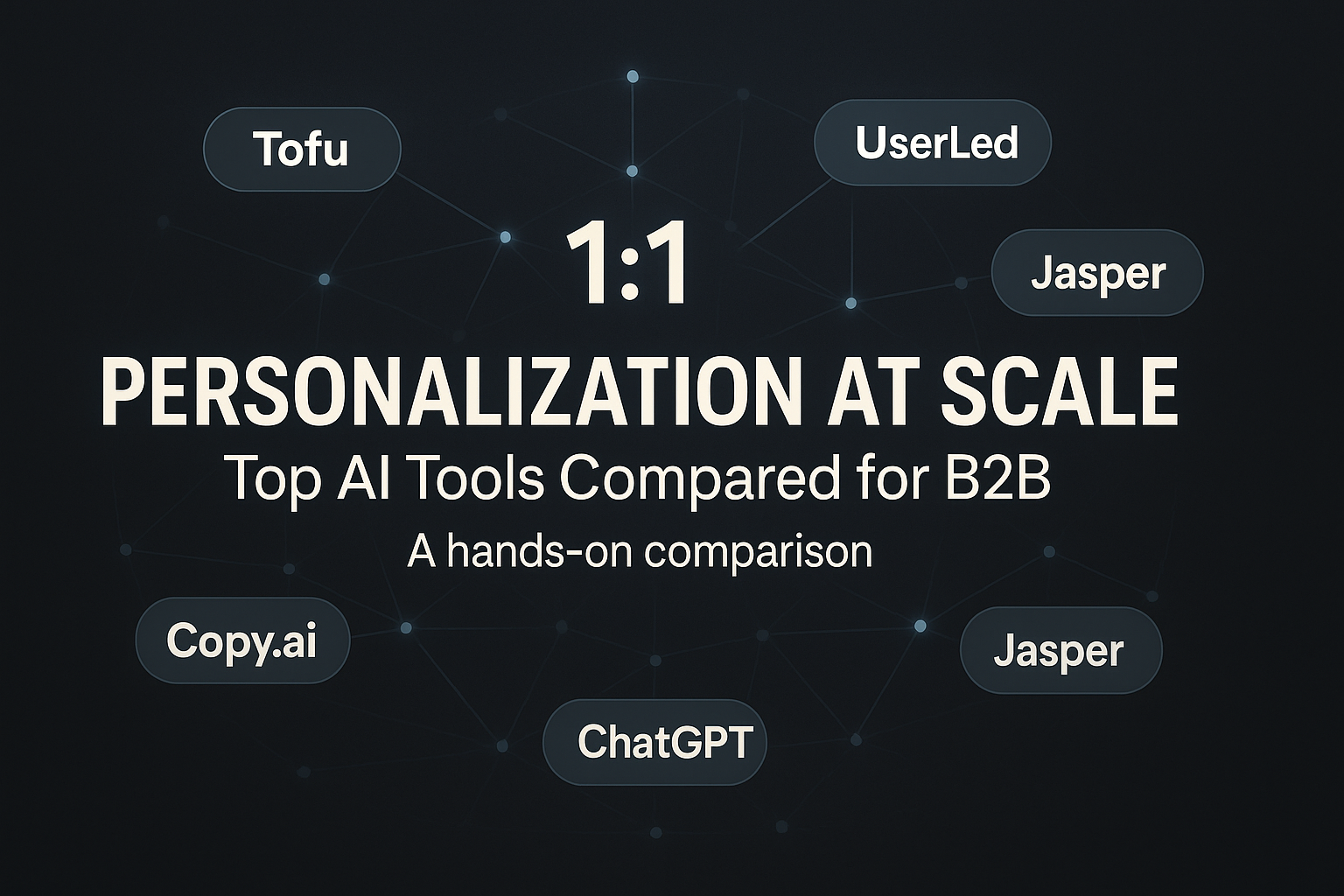
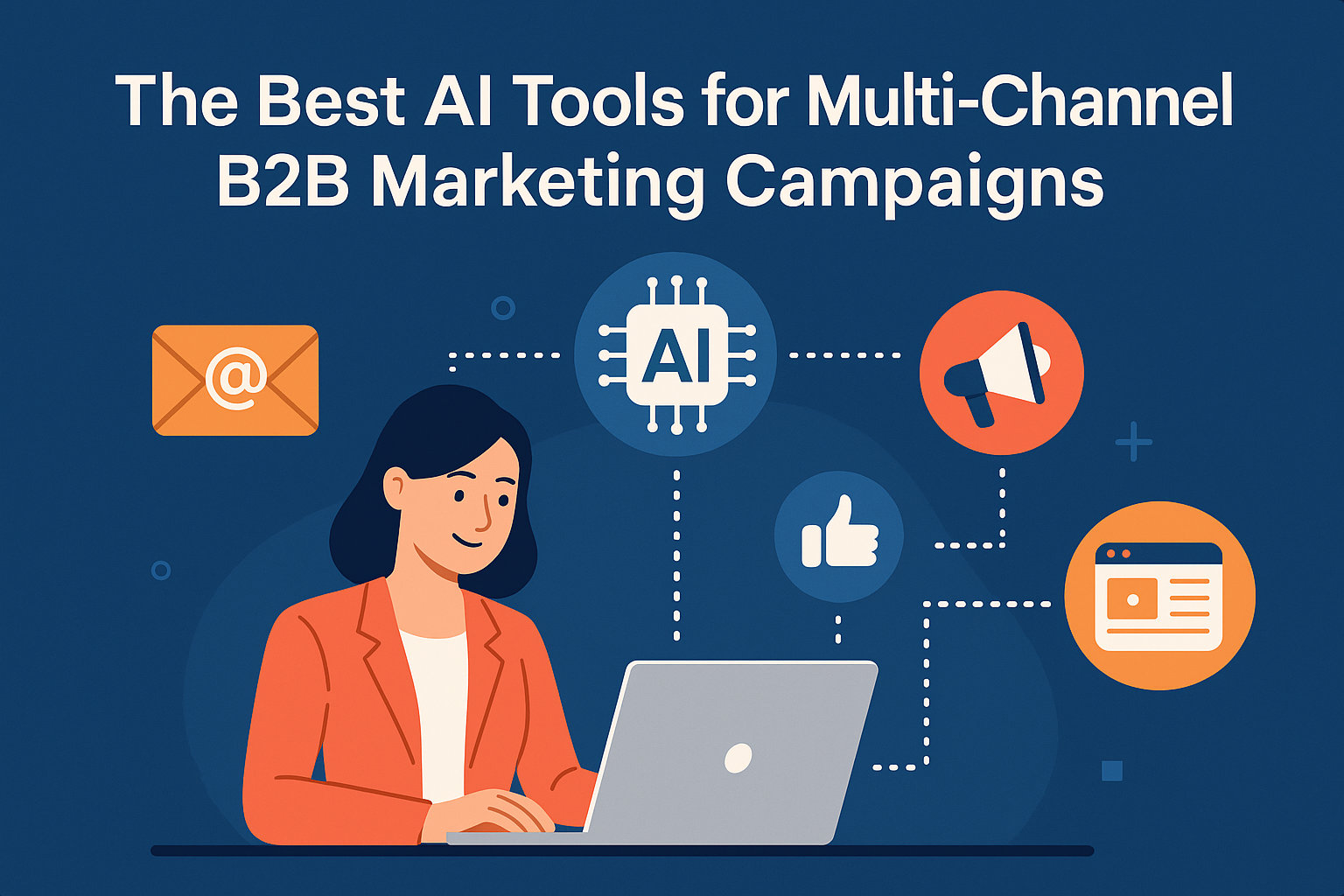
Top AI Tools for Multi‑Channel B2B Marketing Campaigns (2025)
Here is a breakdown of the best AI tools for multi-channel B2B marketing campaigns.
.svg)
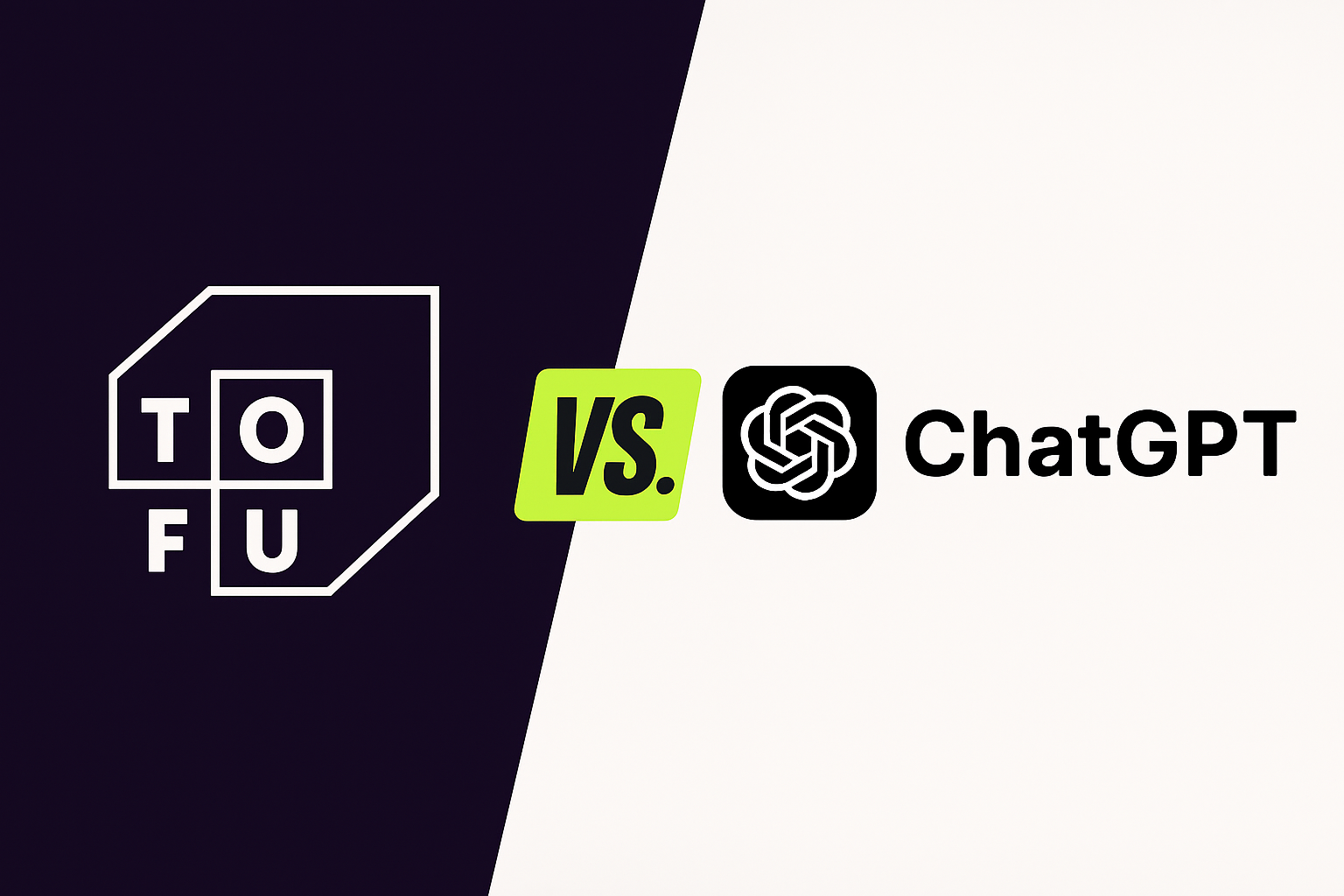
Tofu vs. ChatGPT: Which Should You Use for AI Marketing Campaigns?
For B2B marketers, generative AI is no longer optional—it’s essential. ChatGPT offers broad capabilities at a low cost. Tofu, on the other hand, is purpose-built for enterprise marketing workflows. Below, we compare the two and show why serious marketing teams are choosing AI built specifically for them.
.svg)
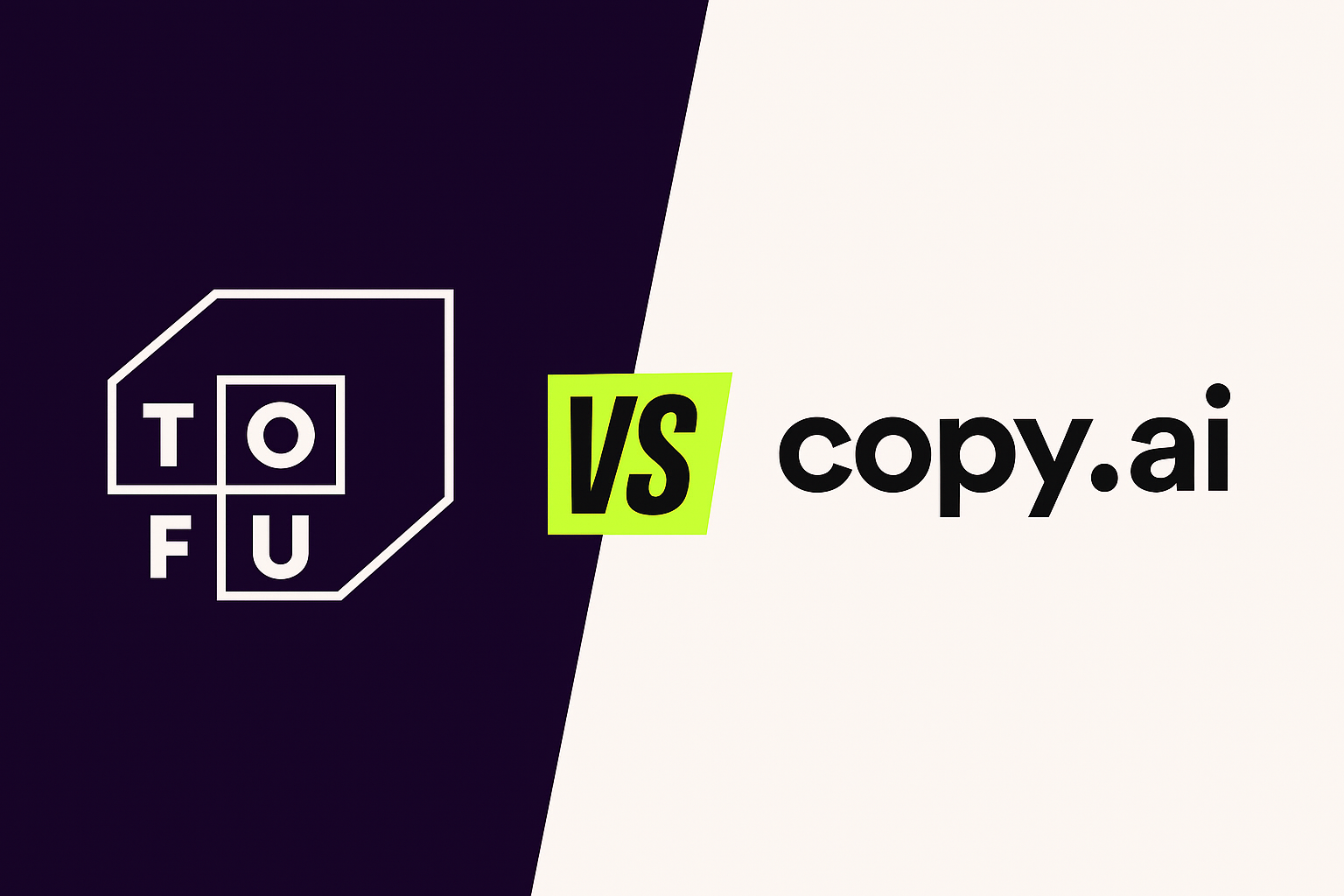
Tofu vs. Copy.ai: Which AI Marketing Platform Comes Out on Top?
Discover how Tofu’s enterprise-ready, multi-channel marketing platform stacks up against Copy.ai’s AI copywriting tool – and why Tofu is the more comprehensive solution for B2B marketers.
.svg)
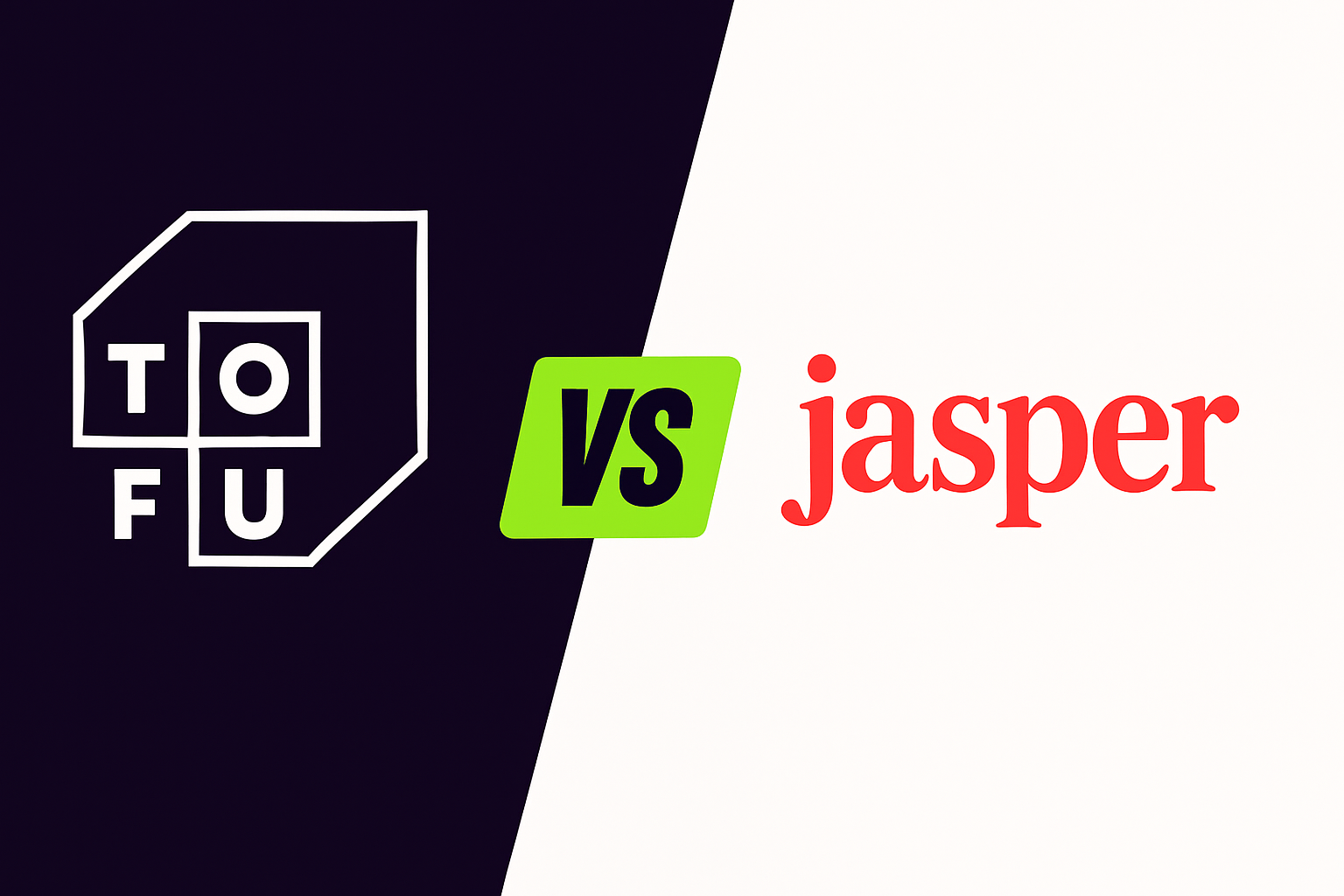
Tofu vs. Jasper: Which AI Marketing Tool is Best?
Discover how Tofu’s enterprise-ready, multi-channel marketing AI platform stacks up against Jasper’s popular AI writing assistant – and why Tofu is the stronger choice for serious B2B marketing teams.
.svg)
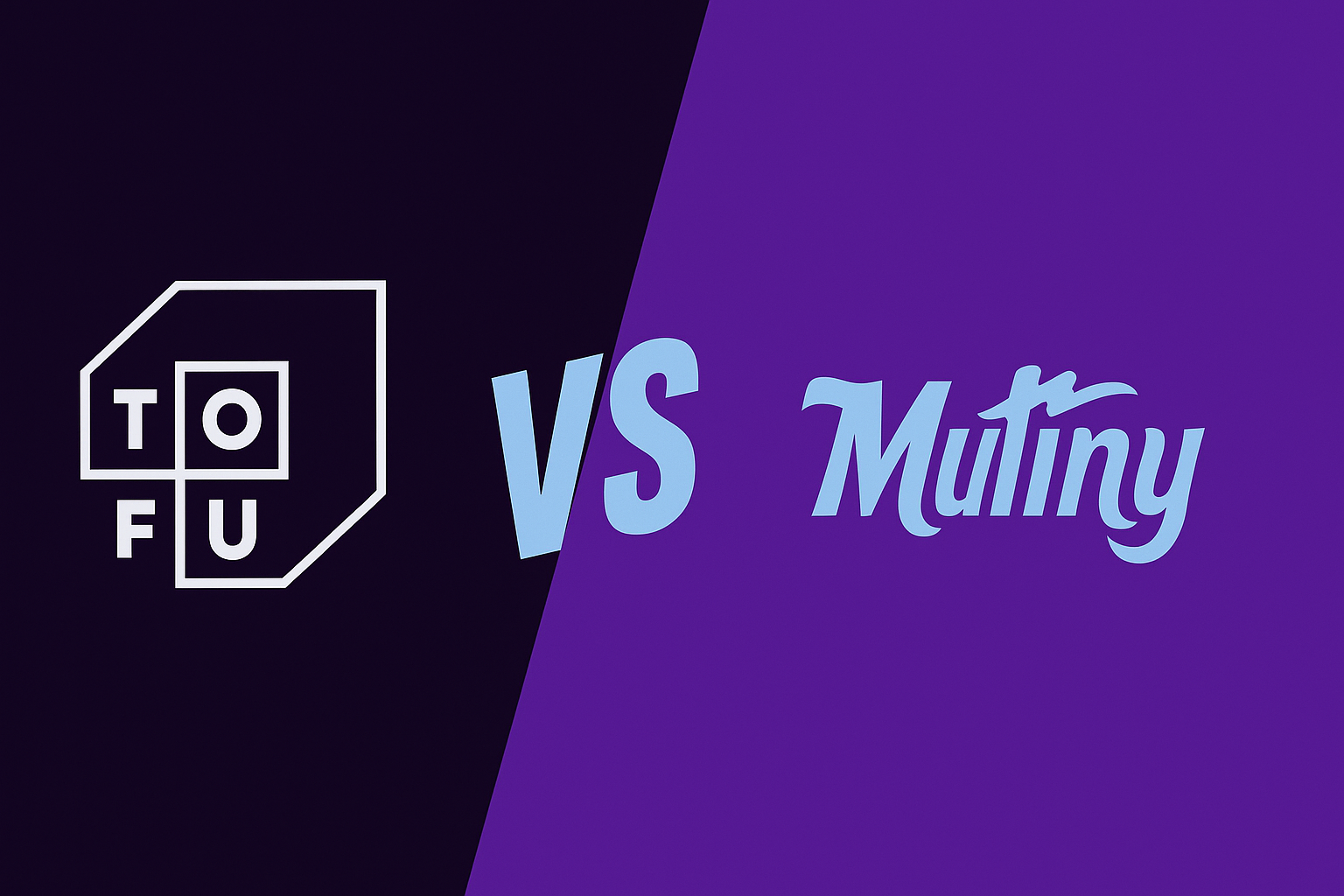
Tofu vs. Mutiny: Which is Best for ABM Campaigns?
Tofu vs Mutiny: Which ABM platform comes out on top? Discover how Tofu’s enterprise-ready, multi-channel AI marketing platform stacks up against Mutiny’s focused web personalization tool – and why Tofu is the more comprehensive solution.
.svg)
.png)
Tofu vs. UserLed: Which ABM Platform Should You Use?
Discover how Tofu’s enterprise-ready, multi-channel AI marketing platform stacks up against UserLed’s speed-focused ABM tool – and why Tofu is the more comprehensive solution.
.svg)
Want to give tofu A try?
Request a custom demo to see how Tofu can supercharge your GTM efforts.
ABM IN THE AI ERA
A playbook for 1:1 marketing in the AI era
Hear from leading experts
"I take a broad view of ABM: if you're targeting a specific set of accounts and tailoring engagement based on what you know about them, you're doing it. But most teams are stuck in the old loop: Sales hands Marketing a list, Marketing runs ads, and any response is treated as intent."

"ABM has always been just good marketing. It starts with clarity on your ICP and ends with driving revenue. But the way we get from A to B has changed dramatically."
.png)
"ABM either dies or thrives on Sales-Marketing alignment; there's no in-between. When Marketing runs plays on specific accounts or contacts and Sales isn't doing complementary outreach, the whole thing falls short."

"In our research at 6sense, few marketers view ABM as critical to hitting revenue goals this year. But that's not because ABM doesn't work; it's because most teams haven't implemented it well."
.png)
"To me, ABM isn't a campaign; it's a go-to-market operating model. It starts with cross-functional planning: mapping revenue targets, territories, and board priorities."

"With AI, we can personalize not just by account, but by segment, by buying group, and even by individual. That level of precision just wasn't possible a few years ago."
%201%20(1).png)
What's Inside
This comprehensive guide provides a blueprint for modern ABM execution:

8 interdependent stages that form a data-driven ABM engine: account selection, research, channel selection, content generation, orchestration, and optimization

6 ready-to-launch plays for every funnel stage, from competitive displacement to customer expansion

Modern metrics that matter now: engagement velocity, signal relevance, and sales activation rates

Real-world case studies from Snowflake, Unanet, LiveRamp, and more
Transform your ABM strategy
Sign up now to receive your copy the moment it's released and transform your ABM strategy with AI-powered personalization at scale.
Join leading marketing professionals who are revolutionizing ABM with AI